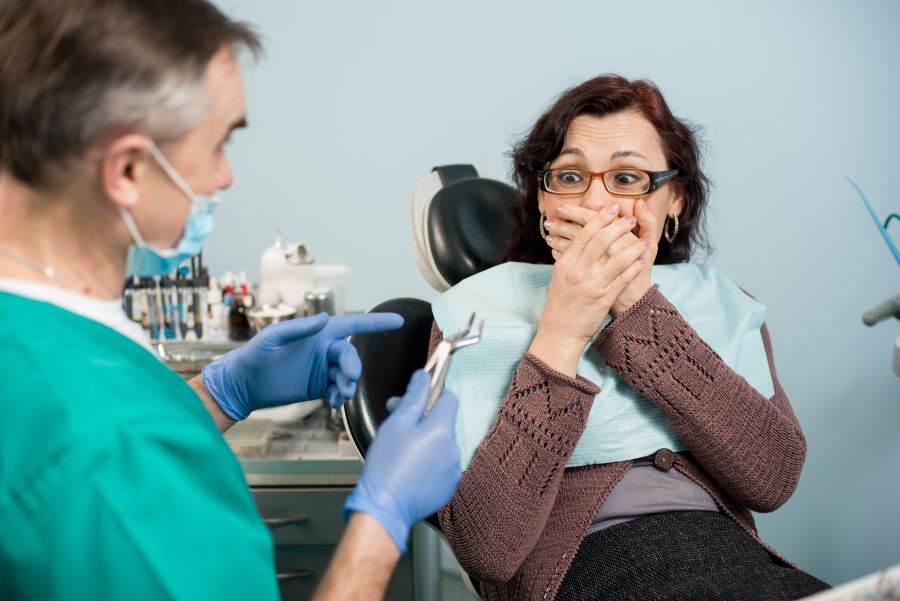

Dentophobia, also known as dental phobia, refers to the fear of dentists or dental treatments. This condition often stems from negative experiences during dental procedures in childhood. Individuals who have experienced such situations may avoid visiting the dentist in the future, even when their dental health is in poor condition, fearing they will face the same issues again. This avoidance can lead to significant health problems over time.
For those wondering how to overcome dental phobia, the best approach is:
It is also beneficial for individuals with dental anxiety to learn step-by-step about the procedures they will undergo. Building trust in the dentist and believing that they are in good hands can significantly help in overcoming their fears.
Why Does Fear of the Dentist Occur?Dental phobia, or fear of the dentist, often originates from negative experiences in childhood. Some common causes include:
Other potential causes:
Dental phobia, also known as fear of the dentist, often develops in individuals due to negative dental experiences during childhood. Along with this, the fear may also arise from various other problems and causes, including:
Traumatic Factors:
Other causes include:
Dental phobia does not develop on its own. It arises due to certain reasons, causing significant distress and potentially leading to harmful health consequences in the future.
Some of the causes of dental phobia include:
Additionally, factors such as pain in a damaged tooth during a check-up, gum sensitivity to dental interventions, the tools used during treatment, the sounds these tools produce, and past negative experiences with dentists also contribute to dental phobia.
Symptoms of dental phobia begin to manifest after negative experiences. To recognize this condition, individuals may notice certain signs of dental phobia in themselves. Typically, people with this fear tend to diagnose themselves.
Some common symptoms of fear of dentists include:
Individuals who recognize these symptoms in themselves should explore treatment options and work to confront and overcome this condition.
Avoiding the dentist due to fear can lead to various problems, including tooth decay, gum loss, oral health issues, aesthetic problems, and other health complications. However, it is possible to overcome this fear, and there are many ways to do so. While this condition can be addressed with professional help, individuals can also work through it on their own using self-motivation. Below are some tips for overcoming fear of the dentist:
Individuals who wish to start the treatment process must first understand what dentophobia is, as this knowledge can lead to a more effective treatment experience. Dentophobia refers to a condition that arises from past dental traumas. Several treatment options are available for overcoming fear of the dentist, and the specific approach depends on the individual's needs.
For those with mild symptoms, non-therapeutic methods may suffice. However, if an individual avoids dental treatments due to fear and their symptoms continue to worsen, professional treatment becomes necessary. In such cases, a tailored treatment plan is created. These treatments are typically provided by psychiatrists or psychologists, and many patients who undergo them find significant relief, often wondering, "How did I overcome my fear of the dentist?" Such treatments are highly effective.
Available Treatment Methods:
Exposure Therapy:This is one of the most commonly used treatment methods. It involves exposing the individual to the elements that trigger their fear in a safe and controlled environment. This helps the patient feel secure and gradually overcome their fear. Additionally, they learn relaxation techniques to help ease their anxiety.
Cognitive Behavioral Therapy (CBT):This method can be used in conjunction with exposure therapy. Delivered in sessions, this therapy aims to uncover and transform the negative emotions associated with dentists. It helps patients replace these negative feelings with more positive and rational perspectives.